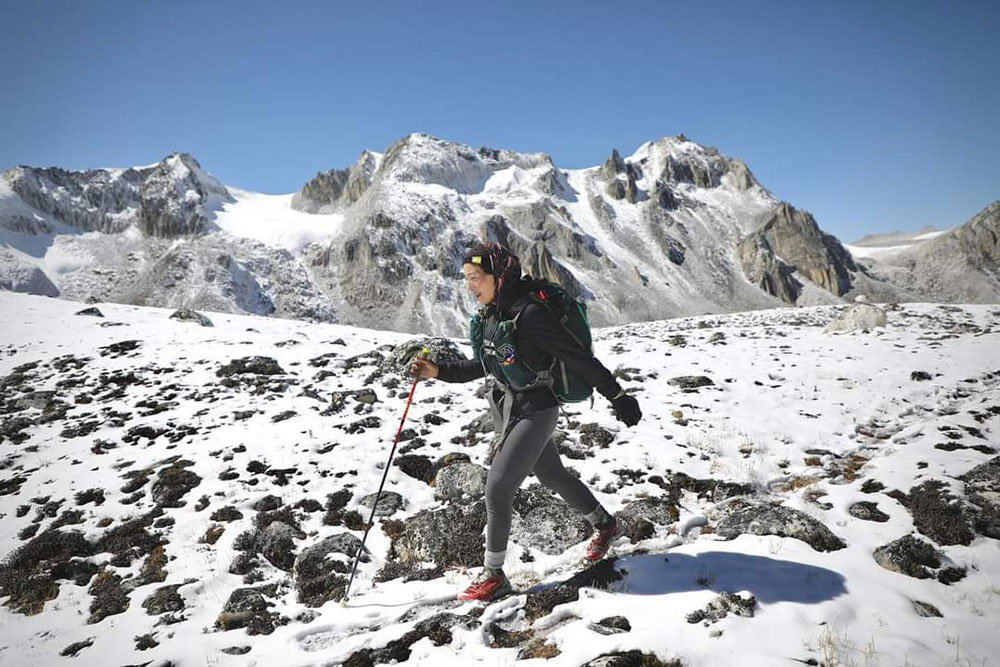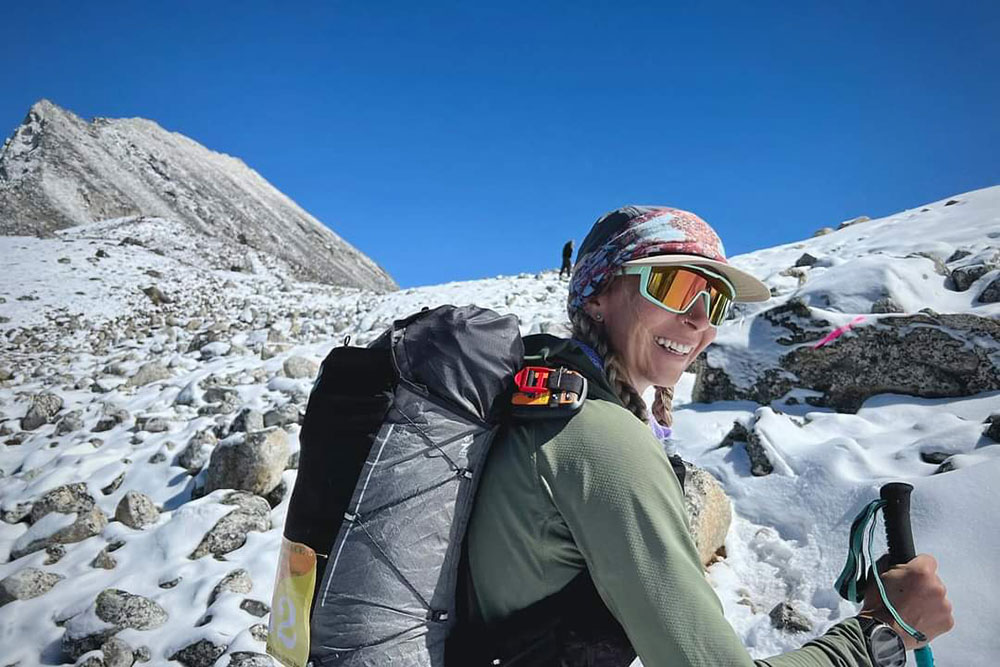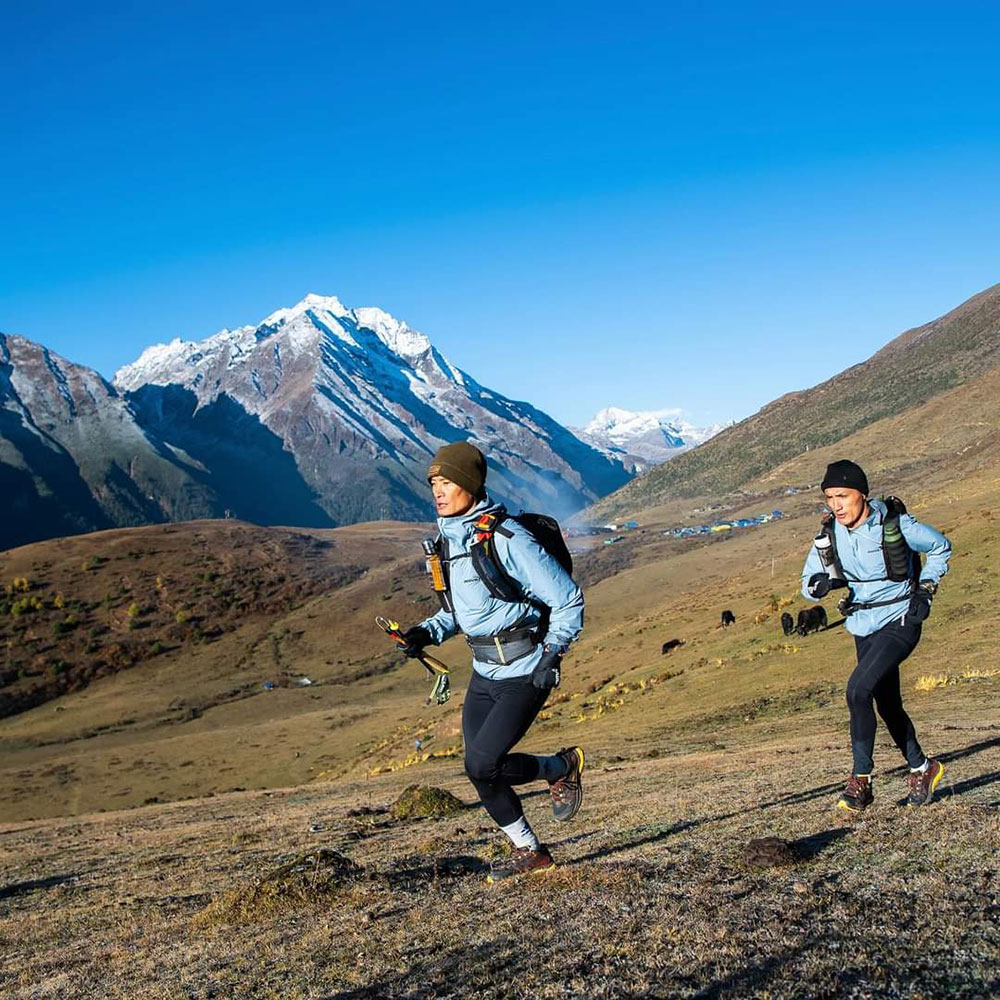Thinley Namgay
The recently concluded five-day Snowman Race, held between Laya and Bumthang, has reinforced the growing impact of climate change on high-altitude communities of the country.
Marathoners who participated in the race expressed deep concern about the environmental changes they witnessed, calling for collective action to mitigate its risks.
While it remains a formidable challenge for Bhutan to fully combat climate change—given the global demographic and economic pressures—the runners are calling for collective action to minimise its risks.


The high altitude places in Bhutan have become much warmer
Sangay Wangchuk, the men’s category winner of this year’s race, observed the impact of climate change more keenly than during his first participation in 2022.
“It was surprising to feel warm while running,” he said. “The environment around the Gangla Karchung area used to be extremely cold when I ran in 2022, but this time, it felt much warmer. I am concerned about how quickly things have changed in just two years.”
He also observed that several mountain rivers had swollen in size, a sign that glaciers are receding rapidly. “I also saw more signs of human and animal presence in these areas than before,” he said.
Sangay Wangchuk emphasised the need for more tree plantations in highland communities and the timely completion of developmental projects to reduce environmental impacts.
Karma Yangden, a resident of Laya and a two-time Snowman Race participant, echoed Sangay’s concerns. She said that she noticed less ice in the Gangla Karchung area, a worrying sign of warming temperatures. “I saw much less snowfall in the mountains, and the conditions have become noticeably warmer. We don’t feel as cold anymore,” she said.
She believes that combating climate change requires a joint effort. She has been creating awareness in her village to avoid littering and to reduce tree cutting.
“In Laya, conditions are changing rapidly. We are now seeing mosquitoes and insects that are typically found in warmer places. Snowfall doesn’t last as long, and fewer highlanders migrate to Punakha during the winter.”
Athletes also observed an increase in floods and landslides, further signs of the changing climate.
Rosanna Buchauer, a first-time participant from Germany who claimed the top spot in the women’s category, shared her concerns about climate change’s global impact. “My message is that the effects of climate change, particularly due to global behaviours, especially in the West, are already visible and affecting people, like those in Bhutan. We must come together to find solutions to protect the life we have as a species before it’s too late,” Rosanna Buchauer said.
Although it was Rosanna’s first visit to Bhutan, she was struck by the beauty of the country’s glaciers and glacial lakes. Despite the challenges of running at high altitudes—above 5,000 metres—she described the experience as unique and deeply rewarding.
“The race felt different from anything I have done before, with its remote setting and the experience of night halts. All the participants felt like family rather than competitors,” she said.
Visiting Bhutan had long been a dream for Rosanna. “The Bhutanese people are incredibly friendly and welcoming, and the natural beauty here is stunning. I am so grateful for the chance to experience it,” she said.
The 2024 Snowman Race presented athletes with a grueling challenge, with participants navigating through snow, ice, rocky trails, steep slopes, rivers, and lakes. This year, all 16 international runners successfully completed the race—a significant improvement over the first edition in 2022, when many international participants were unable to finish.


